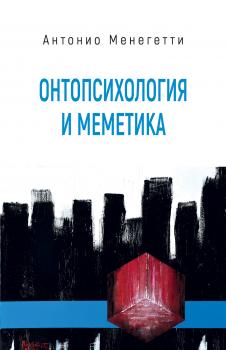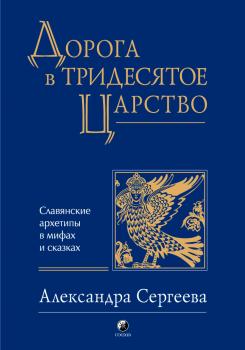ТОП просматриваемых книг сайта:
Общая психология
Различные книги в жанре Общая психология, доступные для чтения и скачиванияАннотация
«Мы существуем в новом мире и потому нуждаемся в ином способе отношения к предметной данности и к самим себе.
Во многих культурах и философиях известно, что человеческое знание в большой степени ошибочны. Например, в древней индийской философии говорится о «покрове Майя», о мире образов, где нет жизни и реальности. Великий философ Эдмунд Гуссерль доказывал, что науки ошибочны, поскольку основаны на феноменах, и что никакая наука не достигает того измерения, где находится жизнь и реальность. В сущности, это можно сравнить с человеком, который путешествует и хочет вернуться домой, где есть вода, хлеб и веселье, но не помнит или не знает дороги, поэтому следует указателям, но они уводят его далеко от правильного пути.
Эти указатели есть мемы, то есть элементарные единицы, которые предоставляют информацию, не соответствующую реальности.
Мем – это информация, которая паразитирующим образом внедряется в процессы синапсов головного мозга. Когда мозг передает информацию, посылая приказы всему организму, он передает электрические и фотонные переменные, образы, отраженные в кремнии. В этот момент мозг не отличает образ, содержащий реальность, от образа, который передает что-то придуманное или ложное, однако субъект верит в него, считает истинным …»
Меметика – наука, предметом изучения которой являются феномены живущих идей, или мемы, включая политические идеи, моду, рекламу, новости и многое другое, с привлечением знаний таких наук, как эволюционная биология, психология и когнитивизм.
Автор пишет о вирусе ума для того и настолько, чтобы сделать прививку умному читателю, иммунизировать его от мема, дать ключ прочтения и расшифровки меметического мира.
Аннотация
В данное издание вошли материалы лекции, посвященных теме «Критерии социальной справедливости в современной демократии», состоявшихся в рамках ежегодного Летнего Университета по Онтопсихологии (Summer University of Ontopsychology) в Италии в августе 2006 года. В мероприятии приняло участие более 500 человек, среди которых политики, социологи, психологи и предприниматели из разных стран мира. А. Менегетти проводит глубочайший анализ всех сфер жизни современного демократического общества. Рассматривая такие понятия, как «свобода», «справедливость», «равенство», понятия, о которых писали еще древние греки и римляне, закладывая основы демократии на заре цивилизации, автор возвращает читателя к истинному, глубинному смыслу этих, казалось бы, привычных слов. Становится очевидным тот факт, что западное общество с его бюрократическим строем заполонило нашу жизнь различными псевдогарантиями, одарило нас инновационными информационными средствами коммуникации, но при этом забыло о человеке – главном действующем лице жизни.
Текст книги пробуждает живой интерес и любопытство, позволяя по-новому взглянуть на ключевые концепты, составляющие основу современного демократического общества.
Аннотация
Эта книга приглашает читателя совершить путешествие в Тридесятое царство – в ту далекую страну нашего бессознательного, где хранится разгадка тайны «загадочной русской души». При помощи юнгианского толкования славянских былин и сказок мы попробуем выяснить, почему живем зачастую вовсе не так, как хотелось бы, почему порой тоскуем и бездействуем, вместо того чтобы радоваться и активно творить свою жизнь по собственному разумению. А также отыщем лекарства для древней языческой души, рецепты которых наши предки «зашифровали» специально для нас в сказках и преданиях.
Аннотация
Provides comprehensive coverage on recidivism risk/needs assessment tools Correctional and healthcare professionals around the world utilize structured instruments referred to as risk/needs assessment tools to predict the likelihood that an offender will recidivate. Such tools have been found to provide accurate and reliable evaluations and are widely used to assess, manage, and monitor offenders both institutionally as well as in the community. By identifying offenders in need of different levels of intervention, examining causal risk factors, and individualizing case management plans, risk/needs assessment tools have proven invaluable in addressing the public health issue of recidivism. Recidivism Risk/Needs Assessment Tools brings together the developers of the most commonly-used risk/needs assessment tools to provide a comprehensive overview of their development, peer-reviewed research literature, and practical application. Written by the leading professionals in the field of risk/needs assessment, the book provides chapters on: Recidivism Risk Assessment in the 21st Century; Performance of Recidivism Risk Assessment Instruments in Correctional Settings; Correctional Offender Management Profiles for Alternative Sanctions (COMPAS); the Federal Post-Conviction Risk Assessment Instrument; the Inventory of Offender Risks, Needs, and Strengths (IORNS); the Level of Service (LS) Instruments; the Ohio Risk Assessment System (ORAS); the Self-Appraisal Questionnaire (SAQ); the Service Planning Instrument (SPIn); the Static Risk Offender Needs Guide-Revised (STRONG-R); the Offender Group Reconviction Scale (OGRS); the Forensic Operationalized Therapy/Risk Evaluation System (FOTRES); the RisCanvi; and more. Systematically identifies currently-validated recidivism risk/needs assessment tools Reviews research on recidivism risk/needs assessment tools used internationally Each chapter presents sufficient detail to decide whether a given recidivism risk/needs assessment tool is right for your practice Recidivism Risk/Needs Assessment Tools is ideal for correctional, probation and parole, and behavioral health professionals.
Аннотация
In this book, designed to increase mental health professionals’ global literacy, authors from 33 countries demonstrate multicultural skills and competencies through case studies that illustrate approaches to counseling and psychotherapy in their countries. Following an introductory section on the use of case studies, chapters focus on a cross section of countries in Africa; Australia and Asia; Central, North, and South America; Europe; and the Middle East. Each case describes the client and his or her presenting concerns and includes a culture-sensitive assessment and treatment plan, an analysis and critical reflection of the case, and questions for discussion. The final chapter of the text presents a comparative analysis of the cases. *Requests for digital versions from the ACA can be found on wiley.com. *To request print copies, please visit the ACA website.
Аннотация
Written by leading scholars, The Wiley Handbook of Entrepreneurship provides a distinctive overview of methodological, theoretical and paradigm changes in the area of entrepreneurship research. It is divided into four parts covering history and theory, individual differences and creativity, organizational aspects of innovation including intrapreneurship, and macroeconomic aspects such as social entrepreneurship and entrepreneurship in developing countries. The result is a must-have resource for seasoned researchers and newcomers alike, as well as practitioners and advanced students of business, entrepreneurship, and social and organizational psychology.
Аннотация
Assessments in Forensic Practice: A Handbook provides practical guidance in the assessment of the most frequently encountered offender subgroups found within the criminal justice system. Topics include: criminal justice assessments offenders with mental disorders family violence policy and practice
Аннотация
This book provides culture-centered assessment and intervention strategies for effective clinical practice with Latina/o individuals and families. Mental health professionals will gain new and expanded cultural competence as they learn to sensitively and ethically integrate Latino values into their work. Throughout the text, case scenarios illustrate ways to work successfully with clients of all ages. A sample culture-centered clinical interview is included, along with a listing of Latino-specific mental health resources. Topics discussed include roles, relationships, and expectations in Latino families; cultural and bicultural values; gender role socialization; generational differences; identity and acculturation issues; educational values and achievement; Latinas/os in the workforce; and religious beliefs and practices. *Requests for digital versions from the ACA can be found on wiley.com. *To request print copies, please visit the ACA website.
Аннотация
Human brains can be seen as knowledge processors in a distributed system. Each of them can achieve, conscious or not, a small part of a treatment too important to be done by one. These are also «hunter / gatherers» of knowledge. Provided that the number of contributors is large enough, the results are usually better quality than if they were the result of the activity of a single person, even if it is a domain expert. This type of activity is done via online games.
Аннотация
Written by an international team of experts, this collection provides a comprehensive account of established and emerging methods of collecting and analysing data within the framework of personal construct theory. Covers methods such as content analysis scales, repertory grid methodology, narrative assessments and drawings, the laddering and ABC techniques, and discusses how and why they are used Explores both qualitative and quantitative methods, as well as methods used in clinical and counselling settings Includes 13 contributions from leading international scholars










